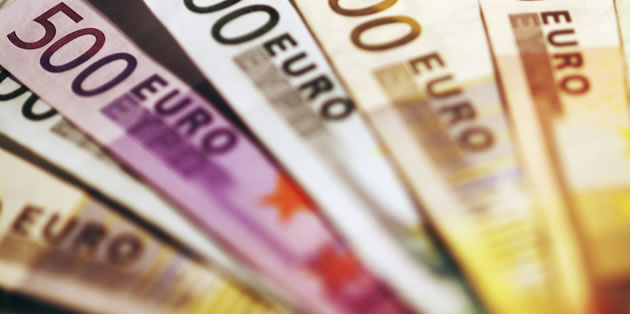The Euro to South African Rand (EUR/ZAR) exchange rate declined by around -0.39% on Thursday morning.
With a distinct lack of data to curb the trend, the single currency softened on Thursday. The declination can be attributed to news from ratings agency Standard & Poor’s (S&P) who downgraded Greece’s credit rating on the grounds that the nation’s debt and other financial commitments will be ‘unsustainable’.
The South African Rand, meanwhile, recovered some of its losses from Wednesday thanks to a softer US Dollar. Ongoing troubles with Eskom and xenophobic riots are weighing on demand, however, which has made the Rand gains somewhat sluggish.
The Euro to South African Rand (EUR/ZAR) exchange rate is currently trending in the region of 12.8222.
Euro (EUR) Exchange Rate Softens on Geopolitics
The shared currency continued on its bearish run on Thursday thanks to a lack of influential data publications to provoke changes. A report which showed that European car sales growth accelerated by the most for 15 months in March wasn’t enough to reverse the declination.
The main cause for the single currency declination is ongoing geopolitical tensions between Greece and Eurozone officials. With the April 24th deadline to present acceptable reforms looming, many fear that Athens will not be able to satisfy both its creditors and Greek citizens.
Athens faces a ‘choice between paying the IMF or paying the wages and pensions of its employees’, Raoul Ruparel, head of economic research at Open Europe, told the BBC.
Further troubles regarding the cash-strapped nation have surfaced. Ratings agency S&P downgraded Greece’s credit rating amid expectations that they would default on loan repayments. ‘Greece’s solvency hinges increasingly on favourable business, financial, and economic conditions… In our view, these conditions have worsened. Without deep economic reform or further relief, we expect Greece’s debt and other financial commitments will be unsustainable,’ stated S&P.
The Euro to South African Rand (EUR/ZAR) exchange rate dropped to a low of 12.7990.
South African Rand (ZAR) Holding Steady on Softer US Dollar
After North American economic data produced mixed results, which erred towards the negative, the US Dollar softened versus many of its major peers. This was advantageous for emerging market assets, including the South African Rand.
However, the Rand’s gains have been halted by ongoing concerns regarding Eskom, the country’s foremost energy provider. With mounting friction between the company and the union, load-shedding and black-outs; the company is finding it difficult to pull itself out of an increasingly deep rut.
Also weighing on demand for the Rand was a resurgence of xenophobic attacks on foreigners in Durban. ‘I can tell you now that this so-called xenophobia is not that. It’s more ‘Afrophobia.’ It’s ideologically driven. But we are on top of it. We are in control and are handling the situation well,’ Police Minister Nkosinathi Nhleko said during a briefing on the attacks.
Euro to South African Rand (EUR/ZAR) Exchange Rate Forecast to Hold Losses
Given the absence of influential domestic data pertaining to either Europe or South Africa, the Euro to South African Rand (EUR/ZAR) exchange rate is likely to hold losses for the remainder of Thursday’s European session.
Friday could see heightened EUR/ZAR volatility with Eurozone inflation data due for publication. With that being said, however, there is a high likelihood that domestic data will have minimal impact on the shared currency with geopolitics driving movement.
The Euro to South African Rand (EUR/ZAR) exchange rate climbed to a high of 12.9443 today.



